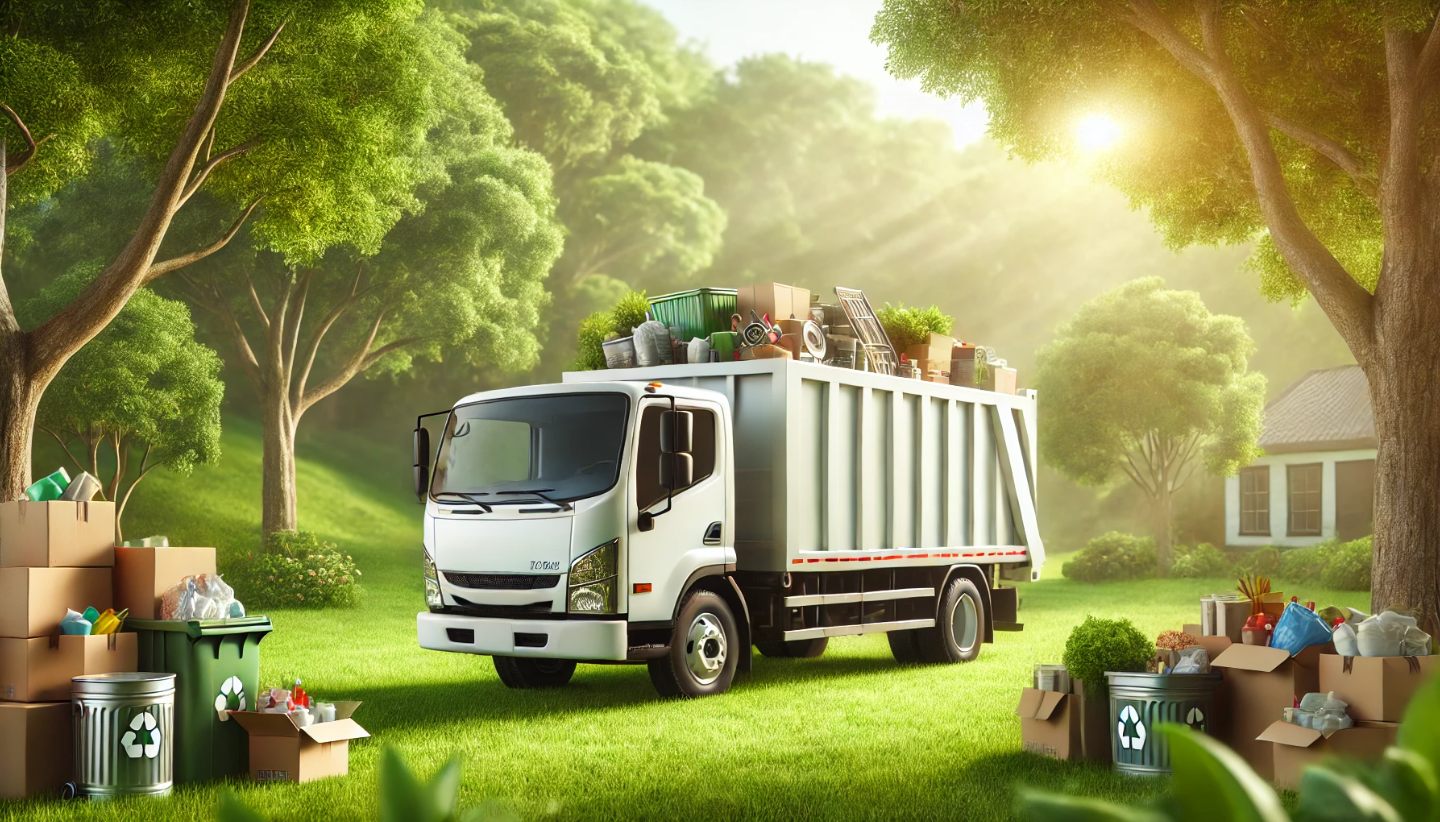
Eco-Friendly Junk Disposal – Your Guide to Sustainable Decluttering
Decluttering your home or office doesn’t have to harm the environment. Eco-friendly junk disposal combines efficiency with sustainability, ensuring unwanted items are handled responsibly. Whether you’re cleaning out a garage, renovating a space, or simply clearing clutter, adopting green disposal practices can make a significant impact. In this guide, we’ll cover sustainable junk disposal methods, tips for reducing waste, and how to find eco-conscious junk removal services.
Why Eco-Friendly Junk Disposal Matters
Sustainable junk disposal isn’t just about keeping your space clean—it’s about protecting the planet.
Key Benefits:
- Reduces Landfill Waste
- Diverts items from landfills, reducing environmental pollution and methane emissions.
- Conserves Natural Resources
- Recycling materials like glass, plastic, and metal reduces the need for raw material extraction.
- Protects Ecosystems
- Proper disposal prevents toxic chemicals from contaminating soil and waterways.
- Promotes the Circular Economy
- Recycling and repurposing items contribute to creating new products from old materials.
Steps for Eco-Friendly Junk Disposal
1. Start with a Plan
- Create a checklist of items to sort and decide how each will be disposed of.
- Categorize into recyclable, donatable, and trash piles.
2. Research Local Recycling Options
- Identify nearby recycling facilities that accept items like electronics, plastics, and metals.
3. Donate Usable Items
- Charities, thrift stores, and shelters often accept gently used furniture, appliances, and clothing.
4. Work with Eco-Conscious Junk Removal Services
- Choose companies that emphasize recycling and donation to minimize landfill waste.
5. Dispose of Hazardous Waste Responsibly
- Contact certified facilities for items like paint, chemicals, and batteries.
Common Items for Eco-Friendly Junk Disposal
| Category | Examples | Sustainable Disposal Methods |
|---|---|---|
| Electronics (E-Waste) | TVs, laptops, phones | Certified e-waste recycling facilities |
| Furniture | Tables, sofas, chairs | Donation, repurposing, recycling |
| Appliances | Refrigerators, washing machines, ovens | Recycling centers, scrap metal recovery |
| Clothing & Textiles | Clothes, shoes, curtains | Textile recycling or donation |
| Yard Waste | Branches, leaves, grass clippings | Composting or green waste programs |
| Hazardous Materials | Paint, batteries, cleaning chemicals | Certified hazardous waste disposal |
Eco-Friendly Alternatives to Disposal
Not everything needs to be thrown away. Consider these sustainable alternatives:
1. Upcycling
- Transform old items into new creations, such as turning wooden pallets into furniture or jars into storage containers.
2. Composting
- Yard waste and food scraps can be composted to create nutrient-rich soil for gardens.
3. Freecycling
- Give away unwanted items through community groups or apps like Freecycle to those who can reuse them.
FAQs About Eco-Friendly Junk Disposal
1. What items can’t be recycled?
- Some items like mixed-material furniture and certain hazardous materials require specialized disposal.
2. How do I recycle electronics?
- Take them to certified e-waste facilities, many of which recover valuable components like gold and copper.
3. What’s the best way to handle hazardous waste?
- Use certified disposal facilities to prevent contamination of soil and water.
4. Are professional junk removal services eco-friendly?
- Many services focus on recycling and donation, diverting items from landfills.
5. Can I compost all yard waste?
- Most organic materials like leaves and grass clippings can be composted, but avoid items treated with chemicals.


